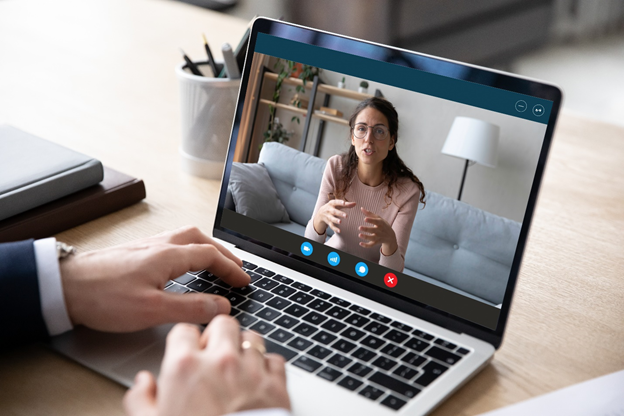
EAP Answers: THE FUTURE OF EAP, POST COVID19
This is Part 1 of a 3-part series based on a Zoom interview I did with Rick Vinnay, Executive Director of The Solutions Group, an Internal/External EAP and Wellness Program based in Albuquerque, New Mexico. You can watch Part 1 of the interview at the link below.
I spent an hour this past month talking to Rick Vinnay, Executive Director of The Solutions Group, an Internal/External EAP and Wellness Program in Albuquerque, New Mexico. His firm’s clientele includes health care workers, first responders, teachers, judges, and other government employees working primarily in the State of New Mexico. Rick and I talked about how EAP has changed since Covid19 and what EAPs can do to meet these changing needs.
Rick surprised me by focusing on what has actually gotten better for EAPs as the direct result of Covid19. “Things we would never have imagined or tolerated before Covid19 are now occurring on a regular basis like telehealth services, online meetings, having children interrupt those meetings and people in all kinds of professions working from home.” Rick’s perception is that as the result of this sea change EAP services will never go back to the way they were. “For example, before the pandemic people preferred coming into the office and see a counselor. Now those same people are telling us, that even if we were to return to having in-office visits, they’d rather see their counselors online.”

Rick shifted gears a bit, when he explained this PowerPoint slide, which you can see above. Originally, designed by Zunin and Myers to show the emotional highs and lows our nation went through during 9/11, Now Rick uses the slide to show where we are in the current pandemic. As he explains it: “9/11 was an acute stressor with a beginning, middle and end (which you can plainly see in the graph). The pandemic, however, is a chronic stressor, with a clear beginning but no clear ending in sight. At least not yet. And that is causing people a lot of stress.”
The red squiggly line at the left of the graph shows where we were emotionally just prior to lockdown, (we had hints of what was coming) the heroic response that followed (where the red line spikes upward) and then the line descends to where we are now: The disillusionment phase.
As Rick describes it, in response to the pandemic our heroic phase was, in some sense, an emotional high. All of the sudden, we were on lockdown, but as a society, we rose to meet the challenge. Most of us were able to cope with this HUGE change quite effectively. We adapted quickly. Frontline workers and their employers, for the most part quickly figured out ways to keep these employees safe, installing plastic shields, and handing out PPEs, and figuring out how to do social distancing (a word we’d NEVER heard before March 1) even in confined spaces!
Many of us were doing things we’d never done before. We were working from home, but still having regular meetings, seeing the doctor online and getting most of our needs met (with the help of online shopping and curbside pickup) without having to set foot in a store for the most part. But then disillusionment sets in when we start to wonder: “When is this ever going to end?” And that’s the difference between an acute event and a chronic event. A chronic stressor goes on and on. (Our bodies were designed to handle acute stress. They don’t do nearly so well with chronic stress.)
After 9/11 the recovery was consistent and in retrospect, relatively fast moving. Right now, with the pandemic we don’t know how long it’s going to last, and as Rick points out: It’s stressful not knowing the answers to these questions. Human beings like predictability (and so do lab rats during stress research). Rick takes encouragement and sees us moving up the graph a bit through a phenomenon he calls “celebrating lessons learned.” He points to the success of telehealth, wearing masks and social distancing, practices that have proved quite effective in warding off the virus.
It’s those successes, and in particular, acknowledging those successes, that move us out of disillusionment and into the recovery phase.
In our next segment we’ll talk about how The Solutions Group counsels their clients with specific problems relating to Covid19 and social isolation.





James Porter
Author